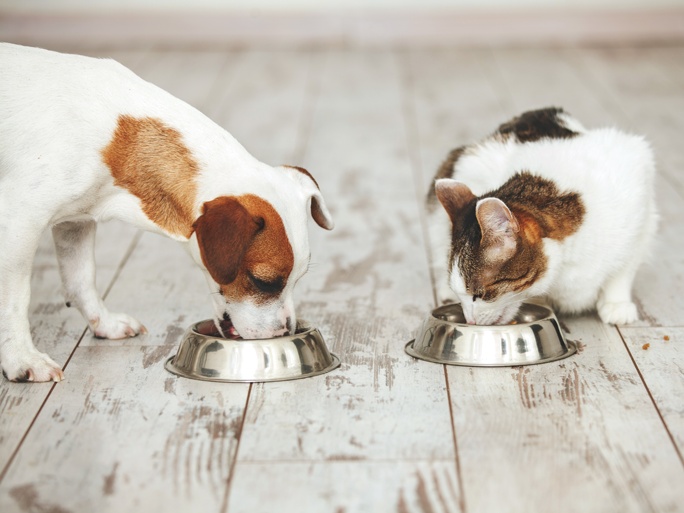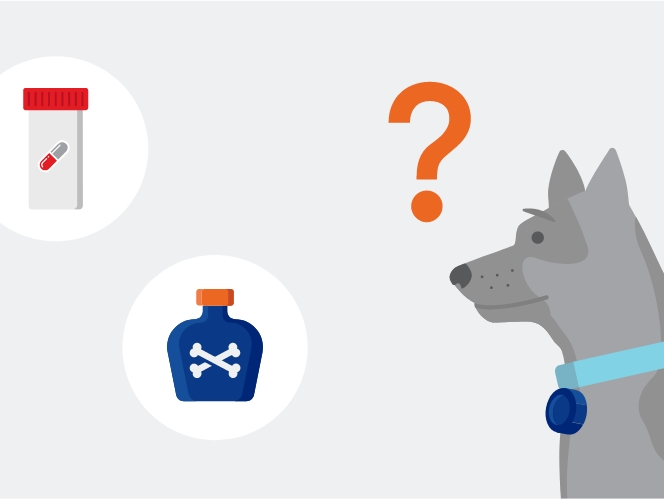when to call the vet
When you should call your veterinarian for an appointment ASAP — and when to take your cat or dog right to emergency care.
You know your pet best, so trust your instincts on when your pet needs care right away. If it is a life-threatening medical emergency, don’t wait. Contact your local 24-hour emergency veterinary hospital immediately.

11 symptoms that need immediate pet emergency care
- Obvious injuries, wounds, or bites
- Knowledge and/or signs of poisoning
- Obvious distress or pain
- Wheezing, difficulty breathing, or blue lips, tongue, or skin
- Pale or white lips or gums
- Inability to pass urine when trying to pee
- Eye injuries
- Inability to walk
- Facial swelling with hives
- Erratic movements or recurring seizures
- Sunken eyes, lethargy, and dry or tacky gums

5 signs your pet needs a vet appointment
- Signs of stiffness or discomfort
- Digestion and weight changes
- Smaller cuts, wounds, or stings
- Mouth and gum issues
- Upper respiratory symptoms
How to know if your pet needs urgent care or veterinary attention
Emergency care is a must when your pet is injured, bleeding, poisoned, or in obvious distress. However, there are other equally important signs that may be easy for pet owners to miss.
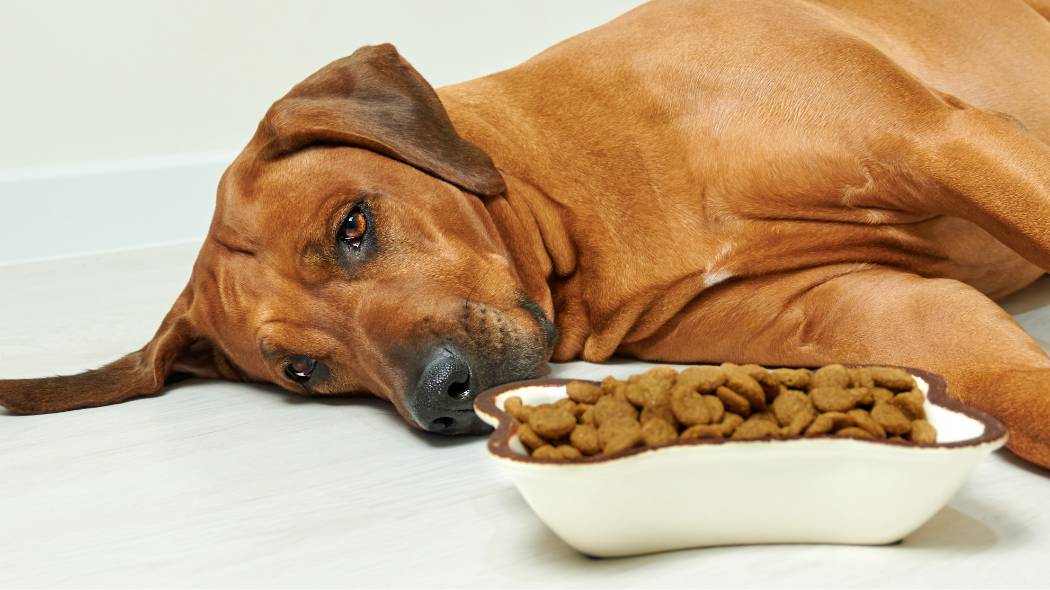
Be aware of life-threatening symptoms in pets that need emergency care
If something is seriously wrong with your pet, don’t wait. Contact your local veterinarian to see if they recommend visiting an emergency veterinary hospital as soon as possible — these clinics serve as the ERs for the animal world.

Obvious injuries, wounds, or bites
Most injuries, wounds, and bites are likely to need immediate veterinary attention to help your pet heal without complications or infection.

Poisoning
Poisons can seriously sicken and even kill your pet without immediate and informed veterinary intervention.

Obvious distress or pain
A pet that is obviously hurt or in pain needs swift medical care to determine and help the cause of their distress.

Wheezing, difficulty breathing, or blue lips, tongue, or skin
These signs that your pet isn’t getting enough oxygen all require immediate emergency veterinary intervention.

Pain with the inability to urinate
Straining to pee with no result or crying while peeing are signs of a urinary problem, which can be fatal without immediate veterinary care.

Eye injuries
Eye injuries can easily become extremely serious without treatment, leading to loss of sight and other long-term health issues for your pet.

Inability to walk or move normally
A pet that suddenly loses mobility needs emergency veterinary care.

Erratic movements or recurring seizures
Uncontrolled movements can indicate a health crisis. Take careful note of your pet’s movements, record them if possible, and consult emergency veterinary care immediately.
Know which symptoms mean you should make a vet appointment
Some symptoms may not be immediate life-threatening emergencies but still need veterinary care to help your pet. If you spot any of the symptoms below, err on the side of caution and contact your veterinary team for advice or for an appointment.
Signs of discomfort or pain can indicate parasites, illness, or wounds
- Withdrawing from normal activities
- Limping or not using a leg
- Having trouble with normal movement
- Shaking or pawing at the affected body part
- Unusual whining or crying
- Protecting a part of the body
- Responding with aggression or fear to being touched
Digestion and weight changes can indicate a digestive or metabolic issue
- Sudden weight loss or gain
- Vomiting
- Diarrhea
- Changed appetite or water intake
- Changed urine output or appearance
Injuries or swelling need attention to avoid complications and infection
- Suspected or obvious eye injuries
- Cuts or wounds
- Facial swelling
- Hives
- Insect bites or stings
Upper respiratory symptoms can mean infections or disease
- Persistent coughing or sneezing
- Thick nasal discharge, especially if discolored
- Unusual panting in moderate temperatures or after mild exertion
Skin and coat issues can reflect parasites, diet issues, and other health problems
- Skin or coat changes
- Unusually bad body odors
- Open wounds or raw patches
Mouth and gum issues may be signs of gum disease or other problems
- Much stinkier-than-usual breath
- Broken teeth
- Trouble chewing
- Bleeding from the mouth
- Changes to the normal pink color of your pet’s gums
Unlimited petcare advice for the pet you love
Cat throwing up at 2 a.m.? Dog suddenly limping? With Pet Chat™, you can get pet advice anytime you need it. Get tips on handling an emergency and find out if your pet should see the vet. Learn more about what to watch for, what to worry about, and when you can relax.
Plus, it’s included in every Optimum Wellness Plan (OWP). There’s no extra charge for chatting, so you can concentrate on your pet and not on fees.

Mentioned in this article

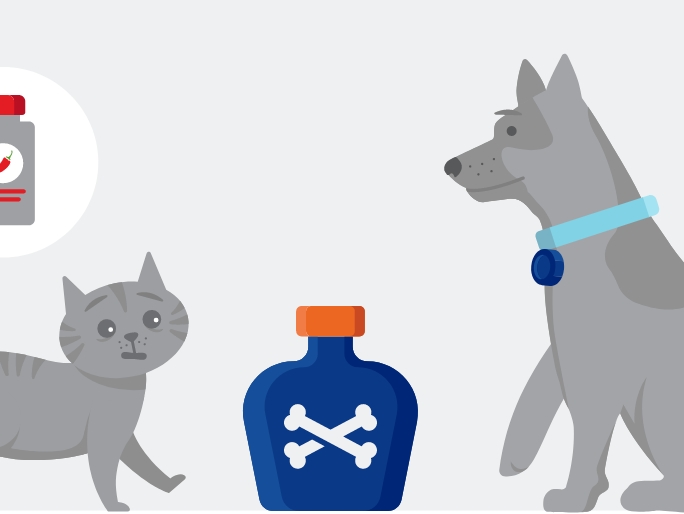
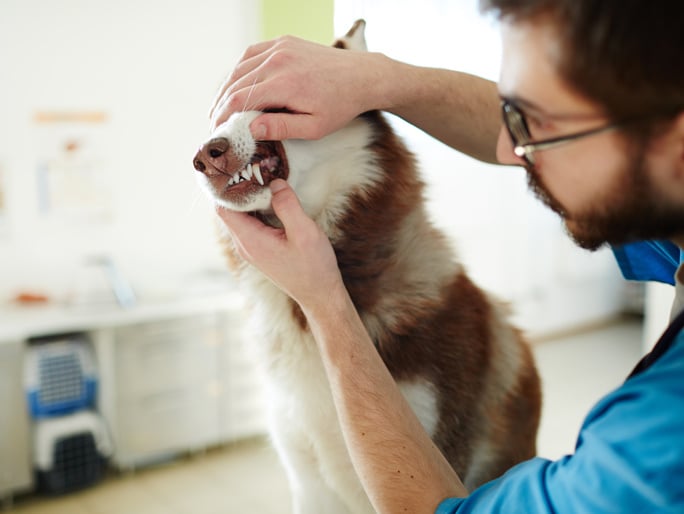
Dental disease in dogs and cats
Danger signs that may mean pain or infection.

Need advice on flea control? Ping Pet Chat™!
Whether it's 3 a.m. or 3 p.m., connect with a real veterinary professional for immediate petcare advice. It's included in all Optimum Wellness Plans®!
Log in to start chattingHow Banfield can help in a pet emergency
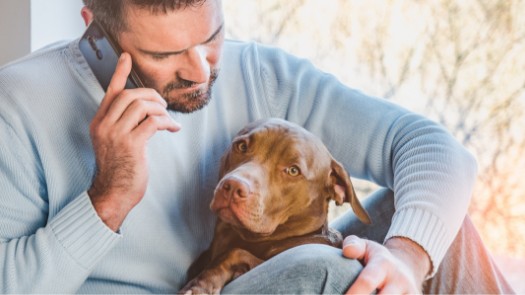
Banfield’s focus is wellness care. In the case of an emergency, call your local veterinary team to see if they have the capacity to see your pet. If not, they may recommend that you go immediately to an emergency hospital.
Costs for urgent care services will depend on location, your pet’s needs, and the services provided. Please speak to your local Banfield veterinary team if you have questions regarding urgent care.
Pet urgent care advice
Call a Banfield near you during hospital hours for advice. Depending on your pet's needs, we can provide a referral for local emergency hospitals or specialty providers. During non-hospital hours, please contact your local veterinary emergency hospital.
Chat with a team member online
All pet Optimum Wellness Plans® come with Pet ChatTM for anytime, anywhere, 24/7 access to live general veterinary advice.
Access pet records in your MyBanfield account
Pet records are available 24/7 in MyBanfield both online and in our app. These include medical records, microchip information, and more. If you lose your records or can't get online, give us a call. A Banfield associate may be able to help you access the information you need.
Want high-quality petcare?
Banfield offers a range of services from comprehensive exams to urgent care advice.
 Mites and mange
Mites and mange Podcast - Not Just Fluff
Podcast - Not Just Fluff



